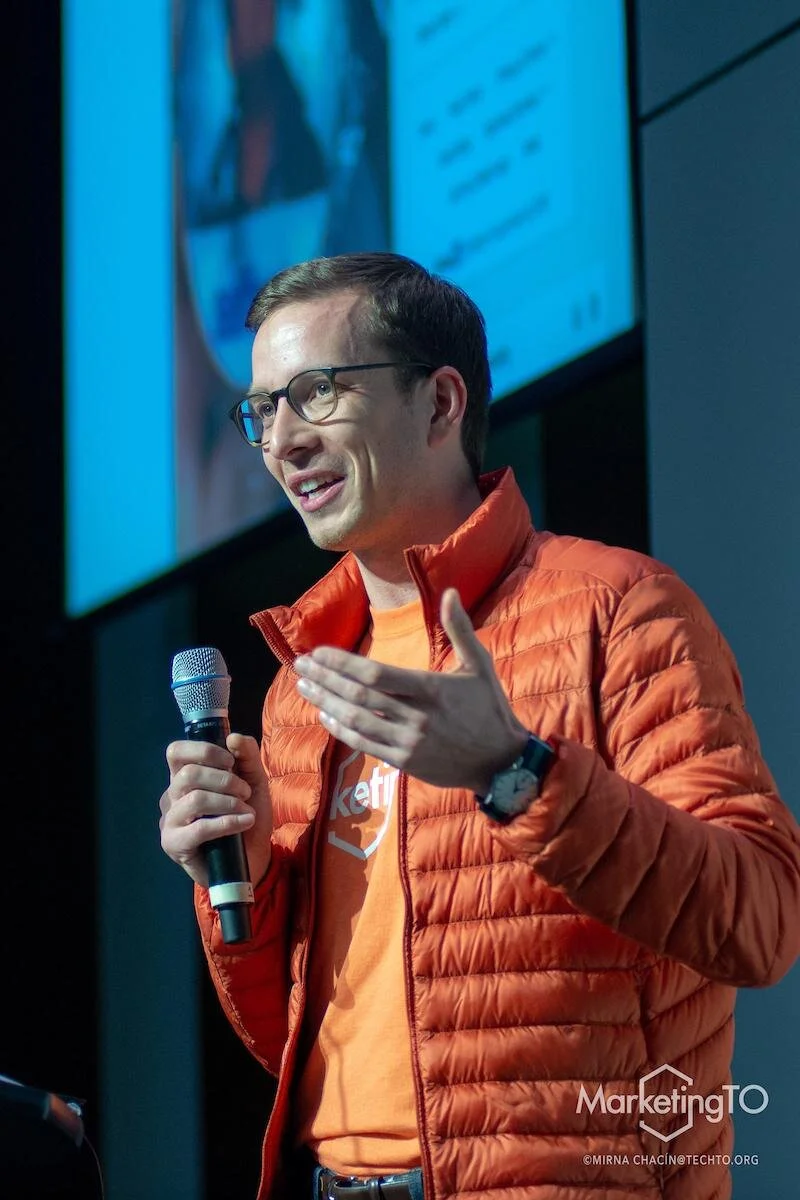It’s been almost 18 months since I stepped into the role of CEO at StackAdapt. This is the first time I’m writing about the new role and what it’s been like.
One of the things that separates elite from amateur athletes is having the mental strength to tolerate pain. The question is: Can anyone strengthen their mental fortitude? I believe the answer is yes.
A great chat with Aydin Mirzaee from Fellow.app about my transitioning into the role of CEO, leadership lessons, new mental models, and more.
Listen here: https://fellow.app/supermanagers/vitaly-pecherskiy-stackadapt/
Years ago my two co-workers at StackAdapt did half-Ironman, which greatly inspired me. This year, I finally achieved a milestone of my own by completing my first Olympic Triathlon. During my preparation, I went online seeking advice for enhancing running speed and endurance, I stumbled upon a video featuring a runner.
A few weeks ago, after almost a decade of pitching, the tables turned, and I was on the other side of a pitch competition – judging the founders sharing their ideas. Eight companies gave presentations, and I’ve decided to provide unified feedback to all of them in the form of this article.
PMF is not guaranteed. Many companies (or shall I say, most startup companies) never find it.
My friend called to share with me the exciting news that he is starting a software company, and he asked if I had any advice for him. I was delighted because I love talking about business!
If you’ve spent any amount of time reading career advice, the topic of building a personal brand has surely come up.
One of the more rewarding aspects of my job is moderating the bi-weekly “Ask Me Anything” sessions with new StackAdapters. And one of the questions that comes up frequently in those sessions is whether I expected the company to get this big when we first started. I admit I didn’t.
My first job out of university was not actually in my field of study. I had moved to Toronto to land a job in finance, and three weeks later found myself working at a small advertising technology startup. I had a blast working there, made friends for life, and was inspired by the founders to pursue my own entrepreneurial path. Looking back, I see now how life-changing that job was for me.
You’ve networked or applied for a job and – congratulations – you’ve landed an interview. Now what?
Today I will share five lessons I’ve learned that will help anyone, especially recent graduates, increase their chances of hearing back from the companies they apply to.
There’s no doubt that success in life depends in large part on who you know. For that reason, knowing how to reach out and make a “cold” contact (that is, without any prior introductions or interactions) is a very important skill.
Meeting the right co-founders is arguably the most important part of starting and running a successful business. But what exactly makes co-founders “right”?
This is a second installment of the story of all random, silly, funny, failed business ideas I had before I finally co-founded the one that worked. Read Part 1 here.
Despite what young lads on Youtube will tell you in their ads, there is no formula to building a successful business.
Written 2500 years ago, The Art of War originally served as a military treatise addressing a host of skills related to military strategy and tactics. Today, a quick internet search revealed that its insights have been revived and repurposed to find new applications in the world of business. The chapter, and specifically a paragraph, that I would like to discuss is on the subject of Momentum.
Early days for most companies are about survival: launch the first version of the product, track down and win those first customers, and, critically, stay afloat financially. In that sense, StackAdapt was no different. Once we overcame the initial startup hurdles, I turned my attention to scaling up.
Last year was the first time my wife brought up the consideration that flying was contributing to our carbon footprint. While over the past few years we had been actively trying to reduce our footprint by buying local, using less packaging, and cutting out meat from our diet, I struggled with imagining a world in which we flew less.
My start in the ad tech industry was unexpected - and maybe a bit unconventional. I studied Finance in university and moved to Toronto to pursue a career in investment banking soon after graduation.
I have previously written about my grandfather, Oleg Pecherskiy [Печерский Олег Петрович] (1936-2005), an orphan who grew to be an accomplished nuclear physicist, recognized twice for his contributions to the field of physics with the prestigious Russian State Prize.
GrowthGenius helps B2B businesses generate more conversations with their ideal customers. Prospecting is the most challenging, frustrating and hated part of selling. Sales and marketing folks love building and strengthening relationships, but opening the door is always the hardest part.
Earlier this month I spent a week in Beautiful British Columbia. One of the trips we undertook was to Garibaldi Lake. After a 23 km hike we were rewarded with one of the most stunning views I have ever seen. The next day, sitting around the picnic table having breakfast, the conversation drifted towards business and startups, and the following question was put to me:“What is it like to start scaling a startup?”
This article originally appeared on BetaKit. In this interview I spoke to Peter Reitano, CEO of Abacus, an “ad tech/agency” focused on growing startups and helping big brands solve their marketing problems. We talked about the agency model of the future, how technology empowers and automates creative, and the concept of the “ego-less” marketer which I found very interesting.
Darrell Heaps knows what it’s like to go global. Having expanded Q4 Inc. into Europe through acquisition of several startups, Darrell grew his team close to 200 people and raised over $28 million.
If you could start your business all over again, what would you do differently? For our third RSR interview, I sat down with Hussein Fazal, founder and CEO of SnapTravel, and previously, AdParlor Inc. (acquired by AdKnowledge in 2011).
Product managers and their teams are often at risk of being pulled in eighteen different directions at once. For our latest RSR interview, I sat down with Adam Jarczyn, SVP Operations and Product at #Paid to learn how to cut the distractions and make your product team part of your competitive advantage.
Every startup is the same – not perfect, broken, raw. But we didn’t choose this road because it was easy. We chose it because we wanted it hard. 100%. 24/7.
I sat down with Bohdan Zabawsky, serial CTO and founder of Fortay.co to unpack transitioning from a startup to a major organization, hiring for success, anticipating problems, and dealing with toxic employees while keeping strong employees motivated — specifically engineers, whether they are destined for leadership or not.





























Every month at StackAdapt I run an Ask Me Anything for new people joining the company. Last month, a question came up – what was the most significant event in the company’s history that defined its trajectory?